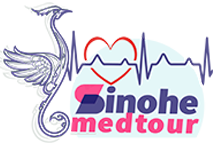Preimplantation Genetic Diagnosis (PGD)
Pre-implantation genetic diagnosis (PGD) is a laboratory procedure used in conjunction with in vitro fertilization (IVF) to reduce the risk of passing on inherited conditions. Some of the most common reasons for PGD are specific single-gene conditions (such as cystic fibrosis or sickle cell anemia) and structural changes of a parent’s chromosomes. Families may also use PGD when a member of the family needs a bone marrow donor, as a way to have a child who can provide matching stem cells.
Typically, couples in need of these techniques are not infertile but have a family history of a condition and want to reduce the risk of having another child with significant health issues or early death. Through generally available genetic screening, however, occasionally couples who are seeking fertility treatment are found to be at risk of passing on an inherited condition, and PGD may be an option for them.
PGD is available for almost any inherited condition for which the exact mutation is known. A unique test must be developed for each couple, however. This test design may take up to several months to complete before beginning an IVF cycle.
The Different Types of PGD Available.
- Comprehensive Chromosomal Screening (CCS) where all chromosomes are evaluated to make sure that there are 2 of all chromosomes present –plus an XY for a male or an XX for a female embryo.
- Limited chromosomal screening –typically looking at 3 to 5 chromosomes (usually X, Y, and 21). This can evaluate sex chromosomal abnormalities and chromosomal 21 abnormalities (Down’s Syndrome).
- Single Gene Disorders. This is used when there is a genetic disorder that runs in a family and when one of the patients undergoing IVF is found to be a carrier or affected by this gene. In order to prevent this disease from affecting other individuals, PGD can be done to select those embryos that do not carry the affected gene. Examples of single gene disorders include: cystic fibrosis, sickle cell disease, thallasemia, Tay-sachs disease, Huntington disease, and many others. Almost any genetic disorder that can be linked to a specific gene can by identified using PGD
Who Can Benefit from PGD?
PGD can benefit any couple at risk for passing on a genetic disease or condition. The procedure is performed prior to implantation so the need for amniocentesis later in pregnancy is reduced or negated. Mostly commonly PGD is used by women age 35 and over, carriers of genetic disorders, women experiencing recurrent pregnancy loss, or any patient desiring to ensure the transfer of chromosomally normal embryos. Some couples will also use PGD for family balancing or gender selection which like any form of PGD has an important medical utility to avoid sex chromosome-linked diseases like hemophilia and Duchenne’s muscular dystrophy
















